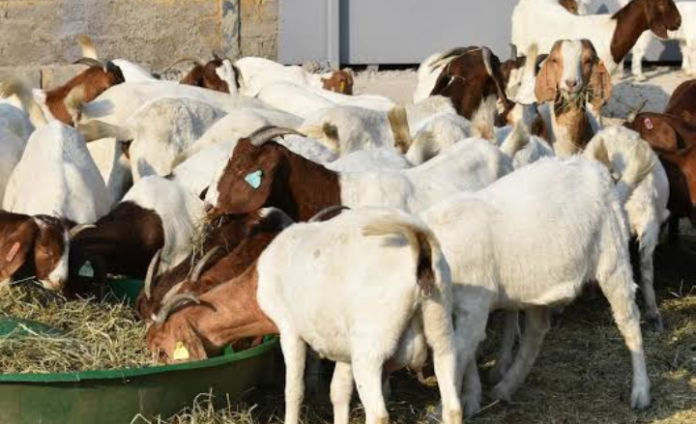Photo of a goat farm used to demonstrate the story. (Credit: Google).
By Marie-Therese Nanlong
Jos – 50 unemployed graduates and women in Plateau State have received a week-long training on goat farming with a charge on them to put the knowledge to use so that they can create wealth and avoid poverty.
The beneficiaries, trained by the National Directorate For Employment, NDE through its Department of Rural Employment Promotion, REP we’re reminded that goat farming is a productive venture which when its waste is a source of income.
The training which commenced on the from June 30 to July 6 is being implemented in 18 states across the country.
Speaking while flagging off the training in Jos, the Director of REP Department , Dr. Michael Mbata said the training was aimed at reducing poverty in the country as goat rearing has great employment potentials.
Represented by one of its Rural Employment Promotion Officer, Mrs. Anne Ita, he said the implementation of the scheme was following the success of a pilot test conducted in Katsina state.
His word, “Three states were selected from each of the geopolitical zones. The beneficiaries are unemployed youths and women that have interest in goat production. Goat production is an economically viable business, from the production of meat and milk and even the waste are all useful.”
Earlier in his remarks, the Plateau State Coordinator of NDE, Ibrahim Abdulaziz said the training would continue for six months on practical aspect of goat production as the scheme would make the beneficiaries self reliant, reduce poverty and over dependence on white collar jobs.”
READ: IGR improvement: State2State, AKIRS hold 2nd public-private sector dialogue
He noted, “NDE is committed to creating wealth. Goat production is a lucrative business with great potentials of expansion because of the reproduction nature of goats which easily multiplies. The capacity of participants would also be built on business management, to enable them access financial assistance through preparing good business plans. The 15 resource persons selected to train the beneficiaries are experts from different relevant disciplines in higher institutions, animal husbandry and agric-entrepreneurs.”
Speaking on behalf of the participants, Miri Selbol said that the training would improve their knowledge on improved variety of goats, and create more opportunities to access financial assistance for business expansion.
















